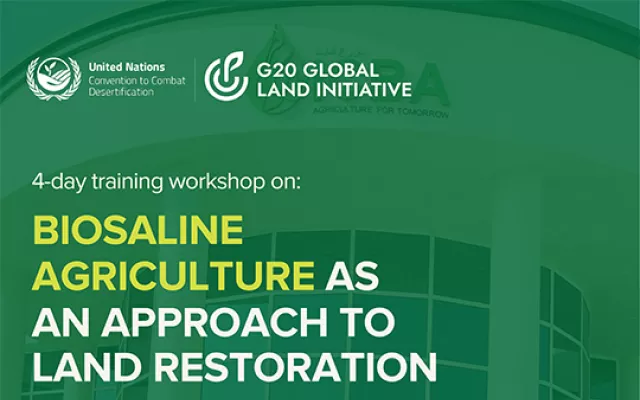Inspiring a generation of farming entrepreneurs: The story of Mohammad Al Wali from Yemen
I am Mohammad Al Wali. I live in Lahj District in southern Yemen. This area is known to be one of the oldest agricultural areas in the world. But desertification has started recently due to climate change impacts and my land is classified now among marginal areas.
Back in the 1980s, I started with one cow to feed my family on our small farm. Now, I have around 30 ha of land and more than 50 cows and 60 camels.
Achieving this was not easy as I faced losses in many years because of the low rains. To overcome expected losses, I diversified my sources of income through the integration of crop and livestock production and investigated new technologies to enhance my farm productivity. I found most of the solutions with the research team of the climate change project that was coordinated by ICBA. With them, I attended farmers’ field schools in Egypt and Yemen. It was a very enriching learning experience; I learned how to select salt-tolerant crops, manage them and use them to feed my animals. As a result, productivity on my farm increased dramatically and it reflected positively on my profits.
Yemen needs more pioneers in the agricultural sector to survive and achieve food security. I hope every farmer in Yemen gets the chance to go through the same learning experience that I had experienced with ICBA.










